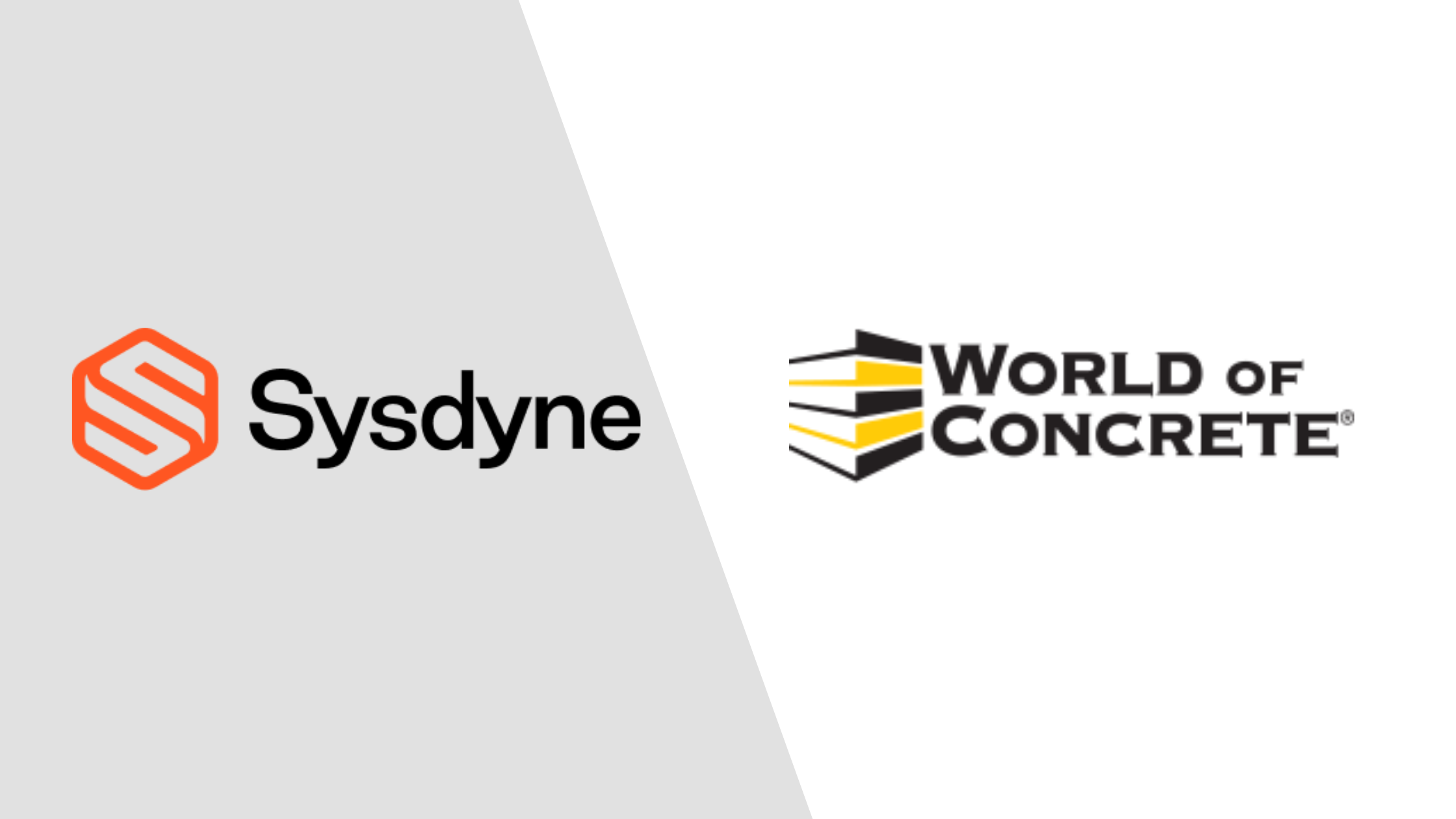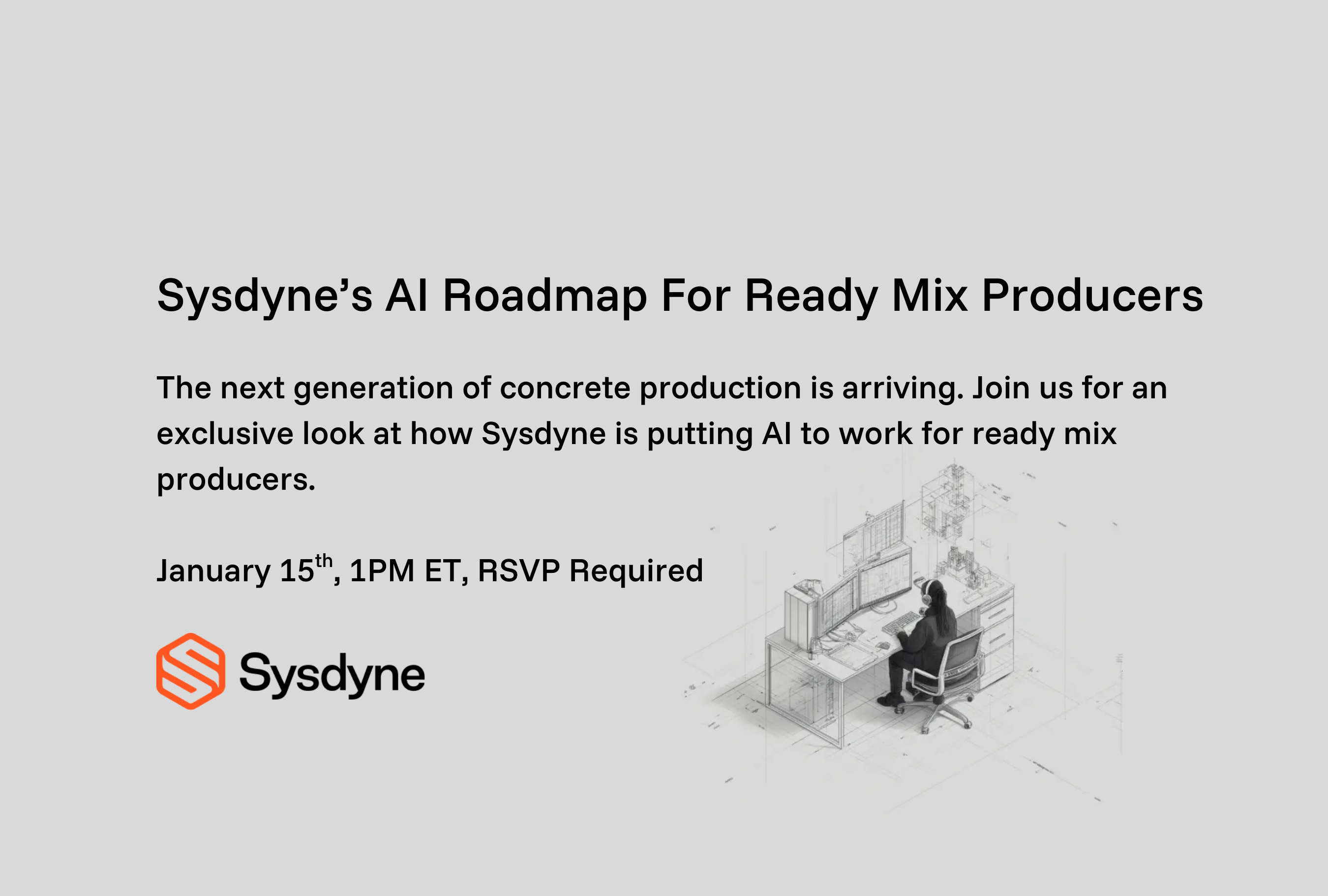
Fleet Team Leadership: 7 Key Traits for Success in the Concrete Industry
The Role of Fleet Management in the Concrete Industry
Effective fleet management is the backbone of any successful concrete operation. The concrete industry has tight schedules and high demands for precision and efficiency. Leading a fleet team in this environment requires a unique set of skills and traits that, of course, include overseeing the movement, maintenance, and operation of concrete delivery vehicles but also rowing in the same direction as your team and ensuring they’re empowered and equipped to do their jobs well.
Being successful in this role isn’t a one-man job; leaning on tools and technology to help streamline operations and execute your vision for success can be a major asset.
Responsibilities of Fleet Managers in Concrete Operations
Like any leader in any sector, fleet managers in the concrete industry carry significant responsibilities. Firstly, they are tasked with overseeing the entire delivery process, from batching to delivery at the job site. This includes ensuring that vehicles are properly maintained, drivers are trained and motivated, and deliveries are coordinated to meet tight deadlines.
Logistical challenges are particularly pronounced in the concrete business due to the time-sensitive nature of the material. Concrete must be delivered within specific time frames to ensure its quality and usability. Fleet managers must also ensure that all safety protocols are followed, that vehicles are operating efficiently, and that any issues are resolved quickly to prevent future delays. This creates significant pressure for drivers to arrive on time, especially when unexpected delays occur.
The Importance of Strong Leadership in Concrete Fleet Management
Strong leadership is the cornerstone of successful fleet management in the concrete industry. Effective leaders drive their teams toward operational excellence, ensuring that all aspects of fleet management are handled with precision and care. Leadership directly impacts team performance, safety, and efficiency.
The leader's role is to set the tone for the team, providing clear direction and maintaining high standards. This leadership helps achieve on-time deliveries, maintain vehicle safety and customer information, and foster a culture of continuous improvement. Without strong leadership, fleets are prone to inefficiencies, safety issues, and decreased productivity.
How Leadership Affects Team Morale and Productivity
Effective leadership is not just about managing operations—it’s also about inspiring your team and having their back. When fleet leaders are strong communicators, they create an environment where team members feel valued and motivated. High morale among drivers and other fleet team members leads to increased productivity and better service delivery.
Let’s face it: Driving ready-mix concrete trucks can be tiring, grueling, dirty, and thankless. Drivers face long hours behind the wheel, sometimes starting just after midnight and not heading home for the day until well into the next evening. On job sites, contractors often demand that drivers put their concrete mixer trucks in unsafe or unstable conditions, and drivers deal with the brunt of it.
As one driver in an online trucking messaging board says, “When the plant messes up or the contractor holds you up too long if anything goes wrong with the batch the driver usually gets blamed.”
Leaders in the ready-mix industry must understand the day-to-day grind drivers deal with and enact strategies, tools, and soft skills that not only help the company keep things moving, but also make drivers feel heard, understood, and empowered to do their jobs well.

Key Trait #1: Strategic Decision-Making for Fleet Operations
Strategic decision-making is a critical trait for fleet leaders. In the concrete industry, where timing and efficiency are paramount, leaders must anticipate challenges and make informed decisions that optimize concrete delivery.
Fleet leaders must consider factors such as route planning, vehicle maintenance, fuel usage and driver schedules when making decisions. By thinking strategically, they can avoid potential disruptions and ensure that the business runs smoothly. For instance, choosing the most efficient routes for delivery can save time and reduce fuel costs.
Decision-Making Tools and Techniques
Fleet leaders can utilize various tools and techniques to support strategic decision-making. Real-time data analytics, such as those provided by Sysdyne’s iStrada paperless ticketing system, enable leaders to make informed decisions based on current conditions. This system provides up-to-date information on deliveries, vehicle statuses, call status and driver performance, allowing for quick adjustments and optimized decision-making.
Key Trait #2: Communication Skills for Effective Fleet Leadership
Clear and consistent communication is vital in fleet management. Fleet leaders must ensure that all team members, from drivers to dispatchers, are on the same page. Effective communication ensures that deliveries are coordinated, safety protocols are followed, and any issues are promptly addressed.
In the concrete industry, where timing is critical, communication can make the difference between a successful delivery and a costly delay. Leaders who communicate effectively can coordinate their teams more efficiently, ensuring that everyone knows their roles and responsibilities.
Best Practices for Enhancing Communication within Fleet Teams
Fleet leaders can enhance communication within their teams by establishing clear communication channels and protocols. Regular team meetings, the use of communication tools, and setting clear expectations are all effective strategies. Sysdyne’s solutions, such as the iStrada system, provide tools that facilitate real-time communication, helping teams stay connected and informed.
Empathy and People Management
Empathy is often an overlooked trait in leadership, but it’s essential for managing a fleet team effectively. Understanding the challenges that your drivers face on a daily basis—from long hours on the road to the stress of meeting tight deadlines—enables you to create a supportive work environment that promotes job satisfaction and retention.
For example, offering flexible scheduling or recognizing and rewarding hard work can go a long way in keeping your drivers motivated and loyal. As a leader, your role in working closely with HR to recruit, train, and retain skilled drivers is crucial. Considering that the average age of a ready-mix concrete truck driver is 47 years old, an age when many are balancing multiple roles, planning for retirement, and experiencing changes in their health and mindset, being empathetic to your drivers on a personal level is important.
Empathetic leadership improves employee happiness and reduces turnover, which is vital for maintaining stable and efficient concrete fleets. Additionally, empathy extends to customer relations. By understanding the needs and concerns of your customers, you can tailor your services to meet their expectations, thereby fewer costs, strengthening relationships and securing repeat business.
Key Trait #3: Adaptability in Managing Concrete Fleet Operations
Adaptability is a crucial trait for fleet leaders in the ever-changing concrete industry. Fleet managers must be able to adjust their strategies quickly in response to unforeseen challenges, such as weather disruptions, traffic delays, or equipment failures.
The ability to pivot and find solutions in the face of adversity ensures that operations continue smoothly, even when unexpected issues arise. Fleet leaders who are adaptable can maintain high levels of efficiency and productivity, even under challenging conditions.
The concrete industry is full of unexpected challenges, from last-minute order changes to unforeseen delivery obstacles. Successful fleet leaders must be adaptable and quick-thinking, able to pivot strategies as needed to keep operations running smoothly.
Adaptability is not just about reacting to problems but also about anticipating them. For example, dynamic scheduling tools that adjust to real-time traffic conditions and resource availability can help prevent delays and ensure timely deliveries. As an owner or VP of Operations, your ability to implement such adaptive solutions will directly influence the efficiency and profitability of your fleet.
Examples of Adaptability in Concrete Fleet Management
In the concrete industry, adaptability often involves responding to last-minute changes in delivery schedules or rerouting vehicles due to road closures. For example, if a delivery route is blocked, an adaptable fleet leader can quickly find an alternative route to avoid delays. Sysdyne offers tools that provide real-time data and alerts, helping fleet managers adjust plans on the fly and maintain efficient operations.
Moreover, problem-solving is a critical trait that goes hand-in-hand with adaptability. When issues arise—whether it’s a driver shortage or equipment failure—effective leaders quickly assess the situation, identify solutions, and implement them with minimal disruption to operations. This proactive approach not only minimizes downtime but also enhances the overall reliability of your fleet.
Key Trait #4: Safety Focus in Fleet Leadership
When weather conditions are poor or construction projects stall, drivers may run into challenges completing their routes or decreased hours that can impact morale. Rain, snow, or extreme heat can affect both the quality of the concrete and the safety of the delivery. Drivers must adjust their driving and delivery practices to account for these conditions.
Upon arrival at job sites, drivers may encounter difficult conditions as well, such as poor road access, tight spaces for maneuvering, or a lack of clear instructions on where to deliver the concrete. These conditions can slow down the delivery process and increase the risk of accidents. Long hours, tight schedules, and the physical demands of driving can lead to fatigue, which increases the risk of accidents and reduces overall productivity.
Fleet leaders have a responsibility to ensure that all vehicles are safe to operate, that drivers are following safety protocols, and that deliveries are made without incidents. A strong safety focus not only protects your team but also ensures that your operations comply with industry regulations. Leaders who prioritize safety can reduce the risk of accidents, minimize downtime, and maintain a strong reputation for reliability.
Implementing Safety Protocols for Ready-Mix Truck Drivers
Fleet leaders should implement strict safety protocols, including regular vehicle inspections, driver safety training, and adherence to industry standards. Sysdyne Technologies’ solutions help monitor and enhance safety practices by tracking and providing real-time data on vehicle conditions and driver behaviors, ensuring that safety is always a top priority.
Key Trait #5: Team Building and Collaboration Skills for Fleet Success
Building a strong, cohesive team is essential for the success of your entire operation. Collaboration among team members enhances communication, boosts morale, and ensures that everyone is working toward the same goals.
Fleet leaders who focus on team building can create a positive work environment that encourages cooperation and mutual support. This collaborative spirit is crucial in the concrete industry, where teamwork is necessary to meet tight deadlines and deliver high-quality, reliable service.
Techniques for Building a Strong Team
Fleet leaders can build strong teams by organizing team-building activities, providing ongoing training, and fostering open communication. Sysdyne Technologies’ platforms, like iStrada and iStradaView, facilitate collaboration by providing tools that enable team members to share information and work together more effectively. Technology that puts everyone on the same page improves access to information, mitigates confusion, and helps free up time for fleet managers to focus on big-picture responsibilities rather than one-off administrative tasks.
Key Trait #6: Analytical and Technological Thinking for Optimizing Fleet Performance
Analytical thinking is essential for fleet leaders who want to optimize performance, track, and make data-driven decisions. In the concrete industry, where efficiency is key, leaders must be able to analyze data, identify inefficiencies, and implement improvements.
By leveraging data analytics, fleet leaders can gain valuable insights into vehicle performance, fuel consumption, and driver productivity. These insights allow for informed decision-making that enhances overall fleet performance.
Having a solid understanding of the tools and systems that power your fleet is non-negotiable. As a leader, you don’t need to be a tech expert, but you should be well-versed in the software and equipment that your team relies on daily.
This includes everything from GPS tracking systems to billing and dispatch software to the trucks and mixers themselves. Technical expertise enables you to make informed decisions about upgrades, maintenance, and investments in new technologies. For instance, knowing the benefits of a cloud-based fleet management software like iStrada can help you streamline operations, reduce paperwork, and improve data accuracy.
Using Fleet Management Software to Your Advantage
Technical knowledge allows you to troubleshoot issues quickly, minimizing downtime and keeping your fleet running at peak performance. It also positions you as a credible leader who understands the complexities of the job, earning you respect from both your team and your customers.
As industry standards evolve, it’s important to assess your team’s pain points to determine how technological advancements can help solve these challenges and keep your operations compliant. For instance, managing and maintaining accurate records, such as delivery tickets, time logs, and inspection reports, can be cumbersome and time-consuming for drivers, especially when done manually. Untangling all of this information with BI tools, for example, can help leaders become more efficient and successful.
Involving your team in the adoption and training of any new tool is critical. Gathering feedback about the features of your fleet management software will not only help you determine if the new tool meets your needs but also will help your drivers feel included in the decision-making process and empowered to share their thoughts and opinions.
Key Trait #7: Commitment to Continuous Improvement
A commitment to continuous improvement is vital for maintaining a competitive edge in the concrete industry. Fleet leaders must constantly seek ways to enhance their operations, from adopting new technologies and processes to improving team training.
Continuous improvement ensures that your fleet remains efficient, cost-effective, and responsive to changing industry demands. By fostering a culture of ongoing learning and development, fleet leaders can drive long-term business success.
Implementing Continuous Improvement Strategies in Fleet Operations
To implement continuous improvement strategies, fleet leaders should regularly review their operations, seek feedback from their teams, and stay informed about industry trends. Sysdyne Technologies supports continuous improvement through innovation and technology integration, providing the tools needed to keep your fleet at the forefront of the industry.
Partner with Sysdyne Technologies for Fleet Management Success
Successful fleet management requires more than just strong leadership—it requires the right tools and technologies. Sysdyne’s products provide fleet leaders with the data and tools needed to make informed decisions, enhance communication, and improve overall efficiency. With features like real-time GPS tracking and analytics, Sysdyne’s solutions are designed to support leadership in fleet management.
Improve Safety and Increase Efficiency with Sysdyne Technologies
To elevate your fleet management and reporting capabilities, consider partnering with Sysdyne Technologies. Contact our team or request a free demo to learn more about how our solutions can help you achieve success in the concrete industry.


